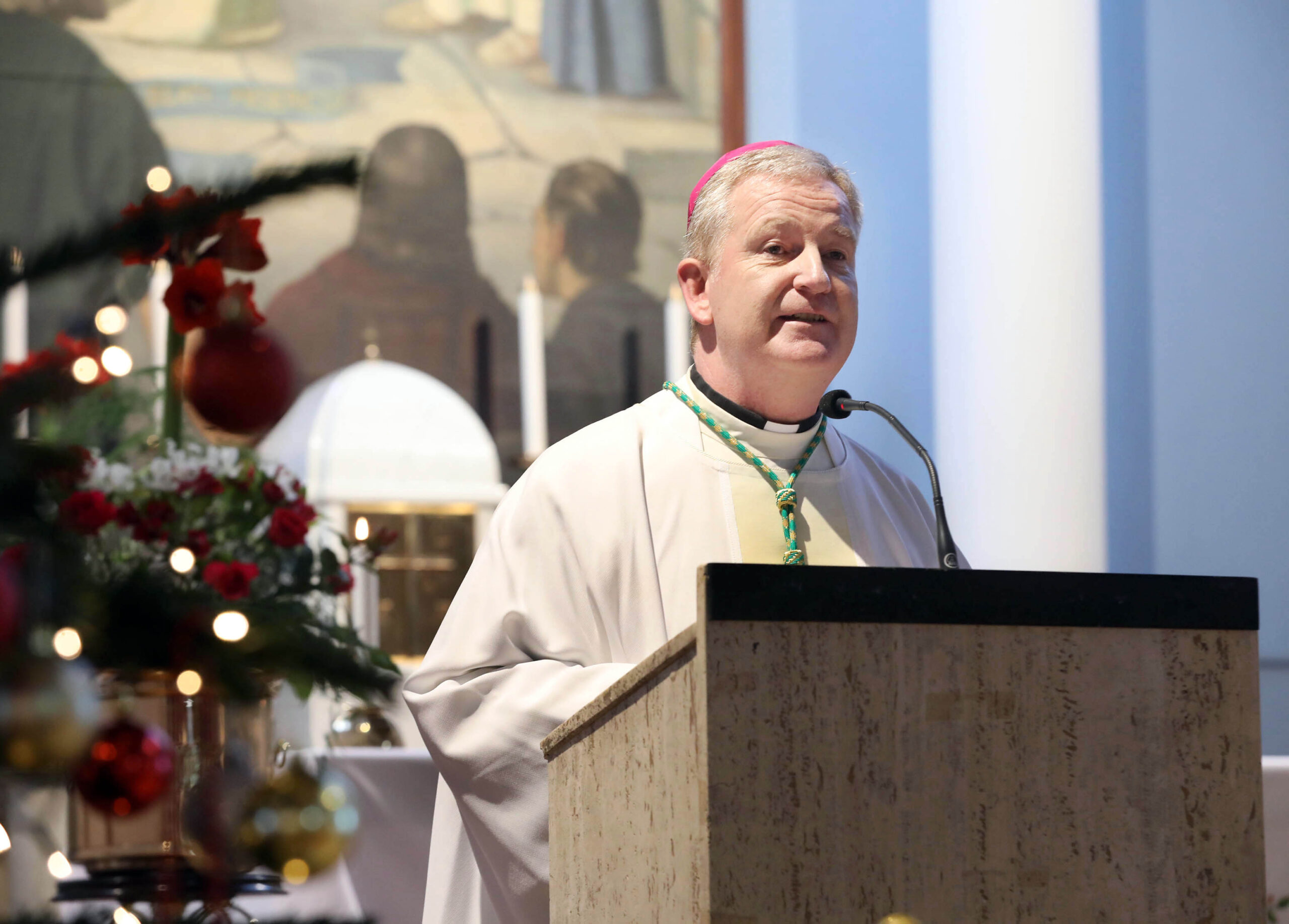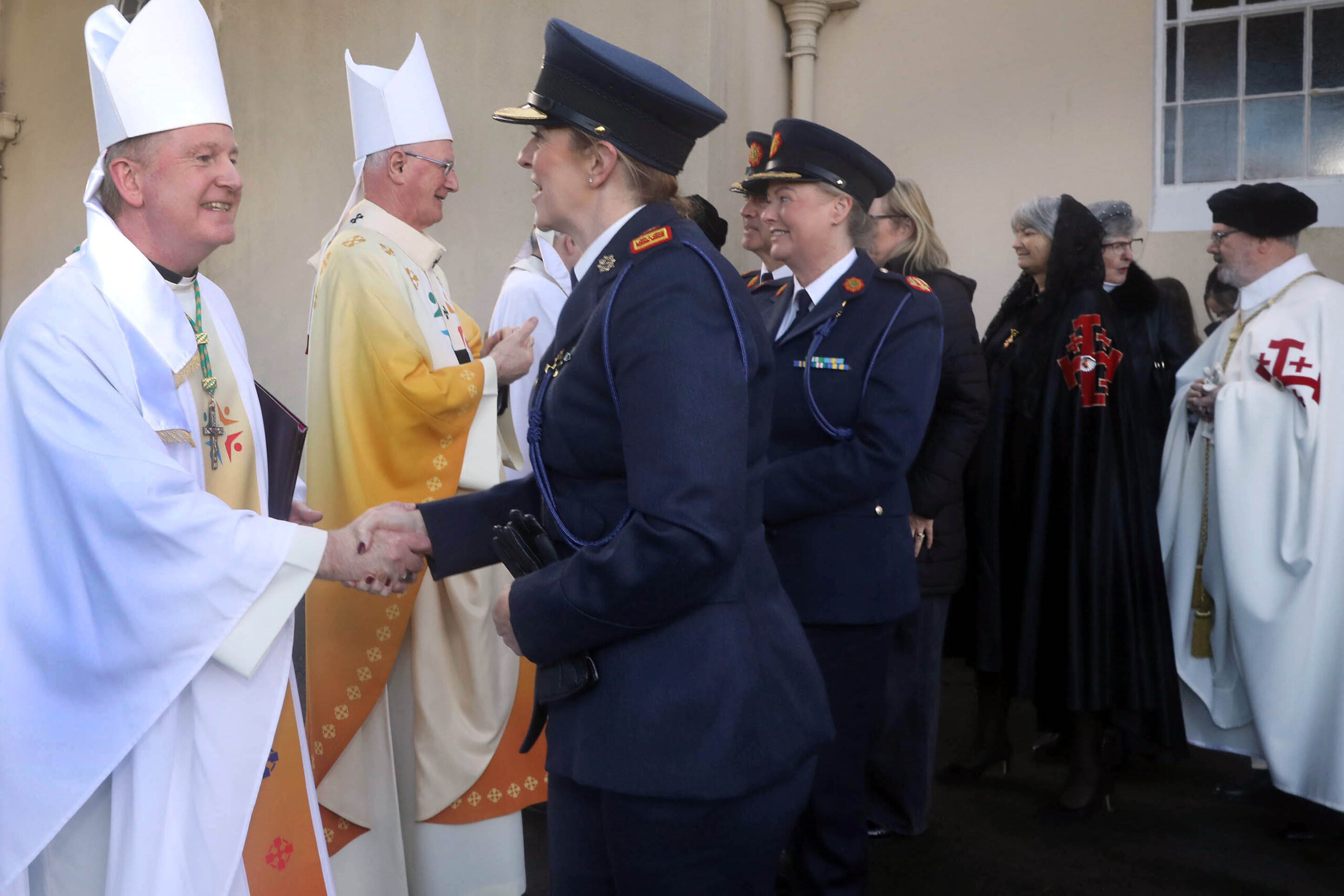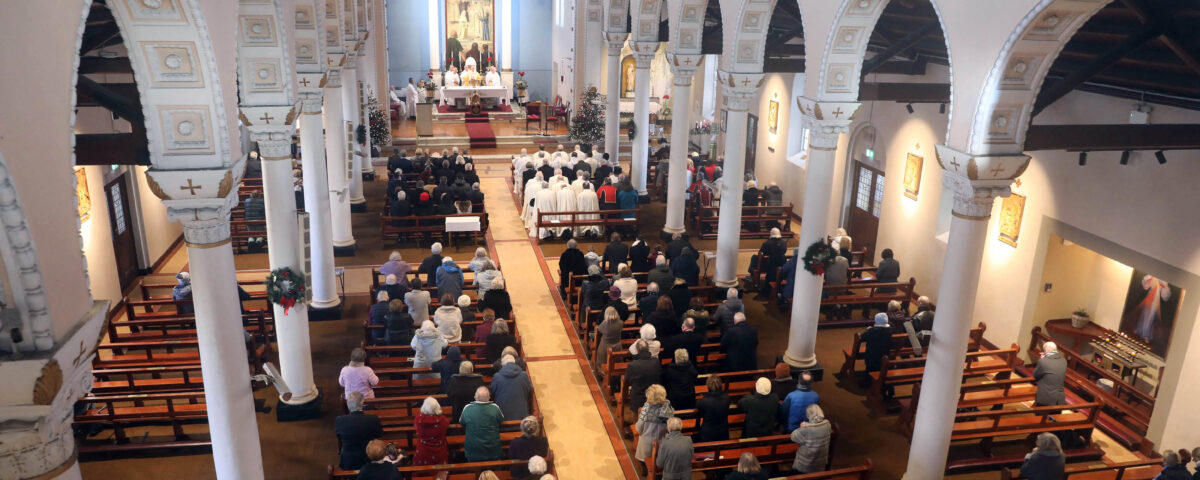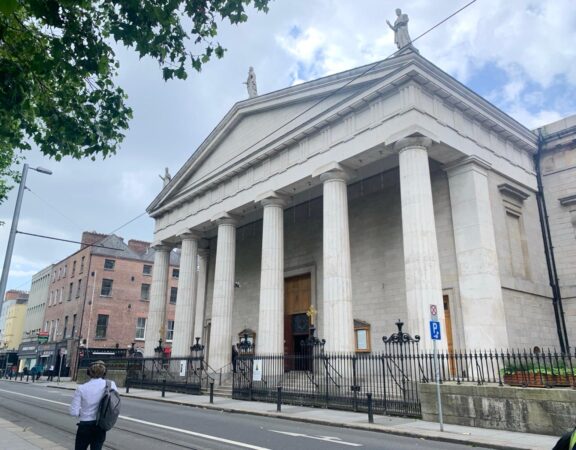58th World Day of Peace
January 1, 2025
St Brigid’s Church, Killester
Homily of Bishop Paul Dempsey
We’ll all be familiar with the phrase ‘An image is worth a thousand words’. An image that has spoken to me over this past week is of Pope Francis, in his wheelchair, at the Holy Door in St Peter’s Basilica on Christmas Eve. On that night he physically opened the door, symbolising the opening of the Jubilee Year, entitled ‘Pilgrims of Hope’. Leading by example, he was the first pilgrim to cross the threshold into this new year of possibility. The idea of ‘Jubilee’ recalls the ancient Jewish practice, when every forty-nine years, a year of forgiveness and freedom for the entire people was proclaimed. It acknowledged that all were brothers and sisters of the one Father, born to live in freedom in accordance with the Lord’s will. As we enter this Jubilee Year of hope, it is more than optimism we set out with. The late Archbishop Desmond Tutu of South Africa made this distinction by telling us he was ‘not an optimist, but a prisoner of hope’. Hope is deeper than optimism. Hope invites us to look to the future with ‘an open spirit, a trusting heart and far-sighted vision’.
Pope Francis acknowledges in his message for the 58th World Day of Peace, entitled ‘Forgive us our trespasses, Grant us your Peace,’ that the Jubilee Year comes at an opposite time when we hear a ‘desperate plea for help’ which calls out to us from so many parts of the world. He goes on to remind us how we are witnessing today the ‘inhuman treatment’ of so many migrants, ‘environmental decay, the confusion wilfully created by disinformation, the refusal to engage in any form of dialogue and the immense resources spent on the industry of war’. It is not easy to remain hopeful as we face these realities and as we witness daily the heartbreaking scenes of the lives of innocent men, women and children being destroyed as a result of ‘exploitation and oppression where might makes right’. However, our gathering today reminds us that we must never give in to pessimism and darkness.

As we cross the threshold into a new year, we might ask how we are to keep hope alive as we face existential questions facing our global community? In the Gospel today we heard how the shepherds ‘found’ Mary and Joseph, and the baby. This implies a search; they were searching for something and then they found it in this child born on a bed of straw. After this encounter they return to their lives ‘glorifying and praising God’. In other words, after meeting Christ they are changed, they are transformed, they see things differently. As we reflect upon the world today, despite our differences, despite our different world views, despite our different cultural backgrounds, deep within our hearts as human beings, there is a search. We are all searching for the truth that will bring us peace and fulfilment and help us offer our children a world where they can grow and flourish and reach the potential, they are capable of. As we face the many challenges on the global stage, perhaps we need to return to this reality at the heart of our humanity. Pope Francis, in his encyclical Fratelli Tutti, echoes St Paul in our second reading today, that when we open our hearts to the ‘conviction that all human beings are brothers and sisters’ this ‘forces us to see things in a new light and to develop new responses’ (FT 128). He goes further to speak of the ‘culture of encounter’ which enables us to transcend our differences and divisions. As we begin this Jubilee Year of hope, could it be possible that those who consider themselves enemies, might in some way begin to listen to each other in our common humanity, where we can return to that search deep within our hearts, so as to achieve peace and reconciliation for the good of our present and future generations. In order for this to happen it will require dialogue with open and patient negotiation. It will, in the theme of this Year’s World Message of Peace, require forgiveness. Forgiveness does not mean forgetting. Pope Francis reminds us in Fratelli Tutti’ that we ‘can never move forward without remembering the past. Those who truly forgive do not forget, but they choose not to yield to the same destructive force that caused them so much suffering’. (FT 252).
To start on this journey to forgiveness and peace, firstly the guns and the bombs must be silenced. And to those who use their power and might and destructive means over others to achieve their aims, on this World Day of Peace we cry out to you, in the name of God, stop! In the name of humanity, stop! In order to move forward may we disarm ourselves of selfishness and hostility and replace them with generosity and hope. Seamus Heaney reminded us that ‘even if the hopes you started out with are dashed, hope has to be maintained’. Let us maintain this hope that great things can be achieved, and real change can come about.
For those that remain pessimistic, I offer one powerful example that illustrates what is possible. It emerges from our own story here on this island. As a young boy growing up in Ireland in the 1970s and 1980s almost every morning as I was having my breakfast before school the news on the radio was about the troubles in the North. I would hear of shootings and bombings almost daily. Families from Nationalist and Unionist backgrounds devastated by the loss of loved ones. With a sigh from his heart, my father would say, ‘They will never sort it out’. However, in the background, the seeds for peace were being sown. People were quietly setting the conditions for people from different sides to begin to listen to each other, to encounter one another. Over time these talks developed and eventually, despite the differences, the past hurts and atrocities, it led to the silencing of the guns and bombs and the signing, in 1998, of the Good Friday Agreement. It is a powerful message of hope and a shining example of what can be achieved if people enter the culture of encounter in order to listen to one another in order to create a better world. It shows us what is possible when we turn from selfishness into the readiness to reach out and listen to others.
In his peace message this year, Pope Francis reminds us that we all have our part to play in creating a peaceful world. He brings it right back to each one of us individually. He tells us that ‘‘a smile, a small gesture of friendship, a kind look, a ready ear, a good deed’. With such gestures, we progress towards the goal of peace’.
After their encounter with Christ, the shepherds were transformed, they saw things differently. As we begin this Jubilee Year of Hope, may we too see things differently, knowing that no matter how dark things may seem there is always a way through. May we, like Mary, the Mother of God, ponder the great hope Christ offers humanity. In him we are called to a new hope, he is the door that opens new possibilities for us to begin again! The late Brendan Kennelly echoes this in the final words of his poem entitled ‘Begin’:
Though we live in a world that dreams of ending
That always seems about to give in
Something that will not acknowledge conclusion
Insists that we forever begin.
Paul Dempsey
Auxiliary Bishop of Dublin








